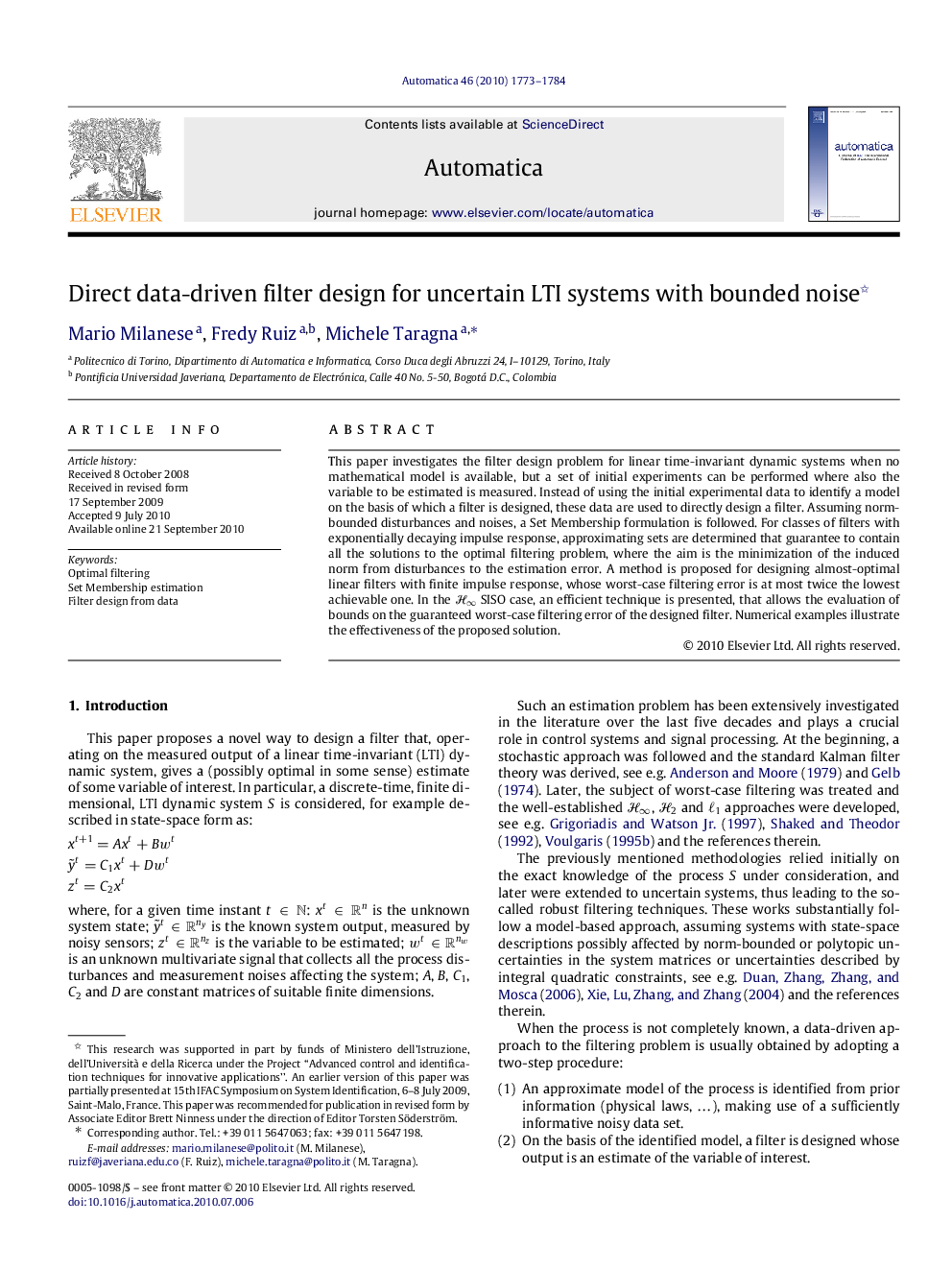| Article ID | Journal | Published Year | Pages | File Type |
|---|---|---|---|---|
| 697132 | Automatica | 2010 | 12 Pages |
Abstract
This paper investigates the filter design problem for linear time-invariant dynamic systems when no mathematical model is available, but a set of initial experiments can be performed where also the variable to be estimated is measured. Instead of using the initial experimental data to identify a model on the basis of which a filter is designed, these data are used to directly design a filter. Assuming norm-bounded disturbances and noises, a Set Membership formulation is followed. For classes of filters with exponentially decaying impulse response, approximating sets are determined that guarantee to contain all the solutions to the optimal filtering problem, where the aim is the minimization of the induced norm from disturbances to the estimation error. A method is proposed for designing almost-optimal linear filters with finite impulse response, whose worst-case filtering error is at most twice the lowest achievable one. In the Hâ SISO case, an efficient technique is presented, that allows the evaluation of bounds on the guaranteed worst-case filtering error of the designed filter. Numerical examples illustrate the effectiveness of the proposed solution.
Related Topics
Physical Sciences and Engineering
Engineering
Control and Systems Engineering
Authors
Mario Milanese, Fredy Ruiz, Michele Taragna,
